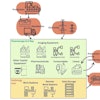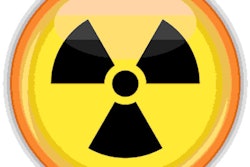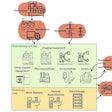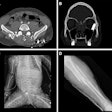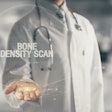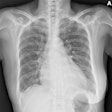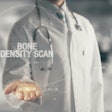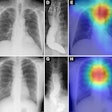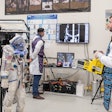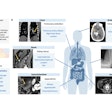
Antibiotics frequently prescribed for interventional radiology (IR) procedures can have psychiatric side effects, the most severe of which can lead to death, according to a group at the University of Pennsylvania.
Nayef Abusafiyah and co-author Michael Soulen, MD, penned an article encouraging other interventional radiologists to be aware of these potentially life-threatening risks, with fluoroquinolones being the most frequent cause, they noted.
"Most of the antibiotics used in interventional radiology have the potential to cause severe psychiatric side effects," they wrote.
As an index case, Abusafiyah and Soulen described the experience of a 52-year-old man with pancreatic cancer and no prior history of neuropsychiatric illness. The patient was referred for percutaneous ablation of a solitary liver tumor. Because of an infection risk, he was prescribed 400 mg of moxifloxacin (a fluoroquinolone) once a day beginning three days before the procedure.
On the second day, the man complained of "pronounced anxiety and some confusion," the authors wrote. Postoperatively, he again complained of severe anxiety and locked himself in the recovery room bathroom for half an hour until coaxed out by an attending physician. He stopped taking the moxifloxacin and was discharged on a regimen of amoxicillin/clavulanate and 500 mg of metronidazole (another class of antibiotics) twice daily.
On the fourth post-operative day, he complained of dizziness, nausea, vomiting, ringing in his head, and "feeling outside of his head." The patient was instructed to discontinue metronidazole, and symptoms resolved over the next few days, the authors wrote.
According to the U.S. Food and Drug Administration (FDA), there were more than 9,000 severe psychiatric adverse events associated with fluoroquinolones over the past 10 years, including 590 deaths (6.4%). In this time period, 1,730 severe psychiatric adverse events caused by metronidazole were reported, including 206 (11.9%) deaths. Moreover, in a recent survey of 94 people who experienced adverse neuropsychiatric reactions to antibiotics, 60% of respondents reported that their physician was unaware and/or denied an association with antibiotics, according to the authors.
"Symptoms may manifest any time after the first dose, with resolution two to nine days after stopping therapy, Abusafiyah and Soulen wrote. "Antipsychotics may be indicated in more severe cases."
The Society of Interventional Radiology (SIR) recommends various antibiotic regimens for patients undergoing interventional radiological procedures, with these same classes of drugs also used to treat infectious complications. In addition to fluoroquinolones and metronidazole, other antibiotics associated with rare but clinically significant neuropsychiatric toxicities include cephalosporins, penicillins, and sulfamethoxazole, according to the authors.
"Interventional radiologists should be aware of these unusual and potentially life-threatening risks associated with these frequently prescribed medications," they concluded.
The article was published June 13 in the Journal of Vascular and Interventional Radiology.



